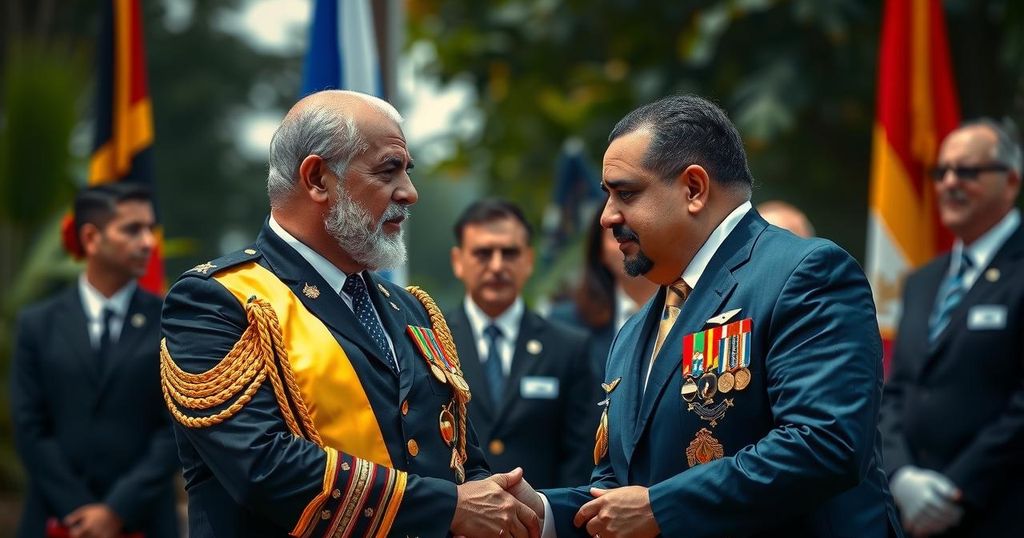Costa Rica Honors President Bukele for Security Achievements Against Gangs
Costa Rica awarded its highest diplomatic honor to El Salvador President Nayib Bukele for significant reductions in violence due to his crackdown on gang crime. President Rodrigo Chaves praised Bukele’s efforts amidst Costa Rica’s own crime struggles, although Bukele’s controversial methods have sparked debate. The honor signifies regional efforts to enhance security while balancing civil rights concerns.
Costa Rica has conferred its highest diplomatic honor upon El Salvador President Nayib Bukele, recognizing his administration’s substantial success in reducing violence attributed to powerful street gangs over a span of more than two years. During a ceremonial event held in San Jose, President Rodrigo Chaves commended Bukele’s achievements amidst Costa Rica’s own challenges with high homicide rates. However, this accolade has sparked debate in Costa Rica, which is renowned for its democratic stability. Under Bukele’s leadership, a controversial initiative has been implemented that involves suspending certain constitutional rights, which has empowered law enforcement agencies to pursue criminal suspects more aggressively. Despite these contentious measures, Bukele enjoys unprecedented popularity, having secured a second presidential term and maintaining remarkable approval ratings. In contrast to Bukele’s command over his congress, President Chaves has not secured a legislative majority and humorously referenced his potential aspirations to change political roles due to his current limitations. Highlighting the regional implications of Bukele’s policies, Chaves stated, “El Salvador’s rescue from those nefarious claws is also helping the peace in our region,” indicating a commitment to combating organized crime across Central America. Costa Rica has experienced escalating violence linked to drug trafficking, reaching a record homicide rate last year. During Bukele’s address, he underscored the prioritization of the right to life as a prerequisite for the assurance of other civil rights, asserting, “There’s no right to movement if I’m dead.”
The context surrounding this honor involves a significant decline in violence in El Salvador due to Bukele’s hardline approach against gangs. These gangs had terrorized the population, prompting severe measures that have drawn broad public support despite some controversial aspects concerning civil liberties. Costa Rica, with its own rising crime rates, is looking for effective governance measures, showing both admiration and concern regarding Bukele’s tactics in addressing security issues.
In summary, Costa Rica’s recognition of President Nayib Bukele reflects a complex interplay of admiration for effective governance in security while simultaneously grappling with the methods employed. The honor underscores the importance of regional stability and cooperative efforts in combating organized crime, even as Costa Rica faces its own rising violence. Bukele’s approach raises vital discussions on the balance between security and civil rights, illustrating the challenges faced within the region.
Original Source: abcnews.go.com




Post Comment